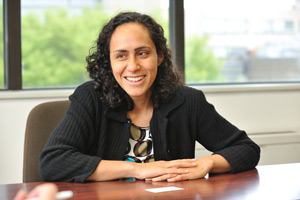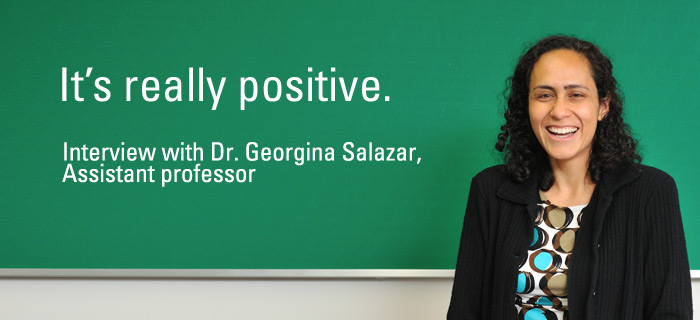Introduction
What is your background, and why did you enter the G30 program?
I’m from San Diego, and I have a bachelor’s in chemical engineering from Stanford, and a PhD in biomedical engineering from the University of California Irvine.
About year ago I was working at the Singapore Eye Research Institute, and someone I know at the University of Sydney told me about this program. It seemed like quite an attractive position as far as freedom to decide what my research would be, and also provided an opportunity to have some responsibility for teaching. So I applied, and here I am.
What sort of work are you doing?
I entered Oneda-sensei’s lab when I first came here, focusing on regenerative medicine and stem cell research. The lab has a division studying stem cells derived from adipose tissue, and this seemed like the best fit for my background. So I joined the subgroup, studying ways to predict how adipose stem cells can be useful based on different markers in the cells. This could have important applications in promoting healing in patients. The lab already has an application for healing bone in patients with impaired healing, for instance if they’ve been on steroid treatments for a long time.
I also just started teaching a class in English writing, which I find is a good chance to interact more with the students. I hope this summer to have a class with topics more aligned with my research background.

How do you like living here?
I’ve been here since October, and I find it’s safe, the services are efficient, with good public transport, and there is a rich culture to appreciate. With the Tsukuba Express, Tokyo is less than an hour away, and I’ve done some traveling to Kyoto and Hiroshima, and up to Hokkaido. Of course, I have to make more of an effort to be actively involved than if it was a place where I spoke the language.
What are your impressions of the G30 program?
It’s really positive. I think Japan is doing a lot of reaching out in the international research community. And the G30 program is a good opportunity for people outside Japan who may not speak Japanese to work at a university here.
For me, it provides a good opportunity for research, and also for building my skills and abilities as an international professional.
Full Name: Georgina To'a Salazar
Nationality: American
Position/Year: Assistant Professor
Field of study/Major: Biomedical Engineering, Stem Cells and Regenerative Medicine
Educational background: PhD, Biomedical Engineering, University of California, Irvine, 2008
BS, Chemical Engineering, Stanford, 2001
Postdoctoral Research Fellow, Singapore Eye Research Institute, 2009 - 2010
